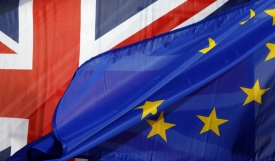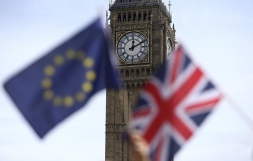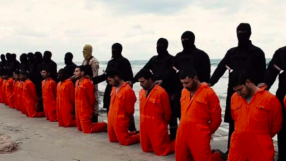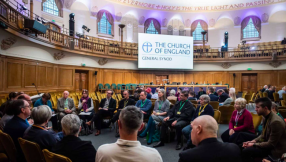Shocked Christian leaders up and down the country today struggled to come to terms with the UK's decision to leave the European Union.
The result prompted the Prime Minister to announce his resignation after strongly campaigning to remain and Labour leader Jeremy Corbyn to face a motion of no confidence in his leadership. The FTSE 100 market plunged by up to 8 per cent in the wake of the biggest political earthquake in decades.
The Archbishops of Canterbury and York called for "humility and courage" as the UK woke to find 51.9 per cent had voted to leave the EU. Both men had previously announced they would support the remain campaign.
"Unity, hope and generosity will enable us to overcome the period of transition that will now happen, and to emerge confident and successful," said the two senior leaders in the Anglican church.
"Let us pray especially that we may go forward to build a good United Kingdom that, though relating to the rest of Europe in a new way will play its part amongst the nations in the pursuit of the common good throughout the world."
The Bishop of Durham, Paul Butler, offered a similar reconciliatory tone having also strongly supported remaining in the EU.
However other church leaders who supported remain were more defiant.
The Bishop of Guildford, Andrew Watson, did not hesitate to reiterate his horror at the decision. Watson previously said a Brexit vote would be one of his "nightmare scenarios" alongside a Donald Trump presidency.
Steve Chalke, Baptist minister and founder of Oasis, was similarly dogmatic.
But Cardinal Vincent Nichols offered a more conciliatory voice. The Archbishop of Westminster, and head of the Catholic Church in England and Wales, admitted Britain's new course would be "demanding for all". Nichols is yet another church leader who was not afraid to mince his words ahead of the vote. He previously warned Brexit would cause "complex problems" and said there was a tradition in Christianity of "holding things together... to start down the path of division almost inevitably leads to further division".
But in the aftermath of the result, Nichols prayed the UK would build on its "finest traditions of generosity".
In a statement he said: "Our prayer is that all will work in this task with respect and civility, despite deep differences of opinion. We pray that in this process the most vulnerable will be supported and protected, especially those who are easy targets for unscrupulous employees and human traffickers."
The Bishop of the Church of England's Diocese in Europe, the Rt Revd Dr Robert Innes, tried to calm the shock of the decision and said, "the world is still turning".
In an article for ACNS, he said he had "particular concerns" for the futures of Ireland and Scotland and said there was a need for "listening and healing" as the UK finds "a new future".
He went on to say the "bruising" campaign had showed how many British people felt alienated from "mainstream London and Brussels-centric political discourse". Other Europeans shared their "discontents" he said, as he called on EU leaders to reform the political structures in order for them to survive.
"The task of reconciliation is never done, and I want my children and grandchildren to enjoy the kind of European peace which my generation has known."
Steve Clifford, general director of the Evangelical Alliance, said: "God is not fazed by the result." He criticised the "cynical campaigning" in the build up to the vote but said efforts must now be made towards "building bridges" between the sides.
"Reconciliation requires honesty and hard work," he said. "It requires that we show respect and openness to those who we disagree with.
"We cannot ignore the differences that this vote has exposed, but we cannot let the differences define us. Our hands of friendship must do the work that voting cannot."
You can read all the updates from various church leaders on our live blog here.















